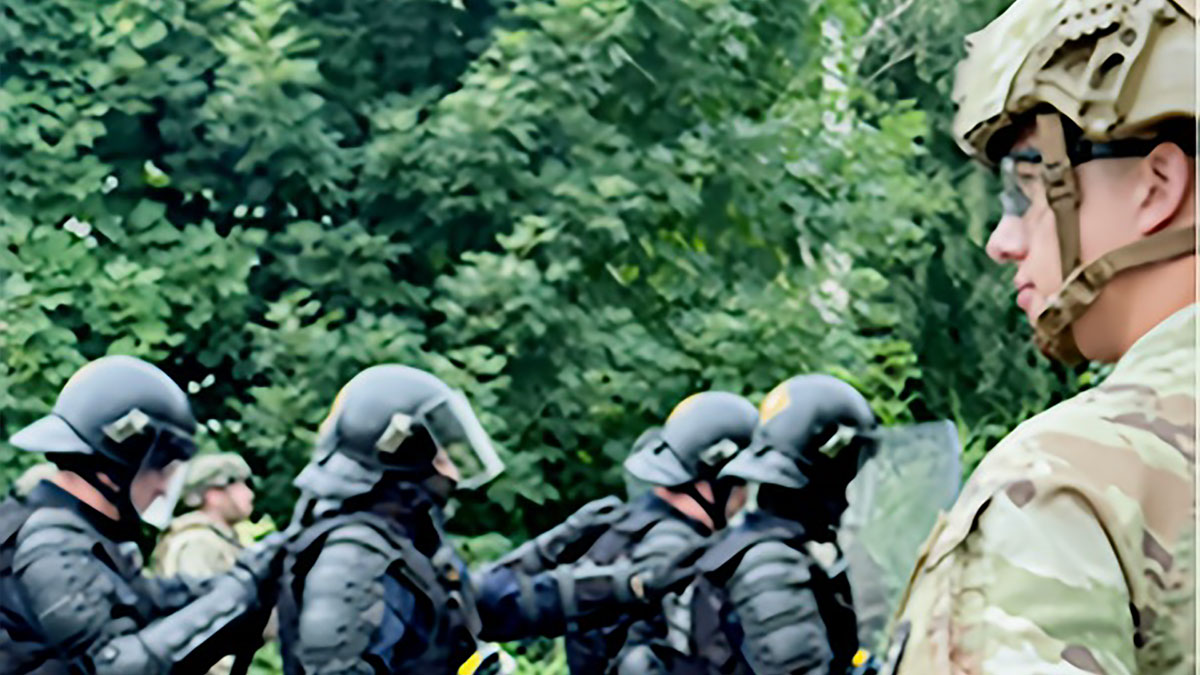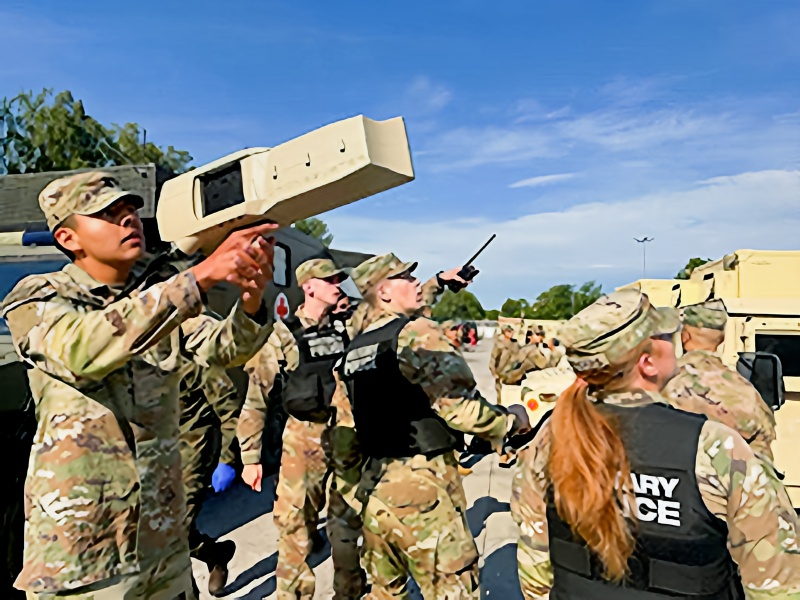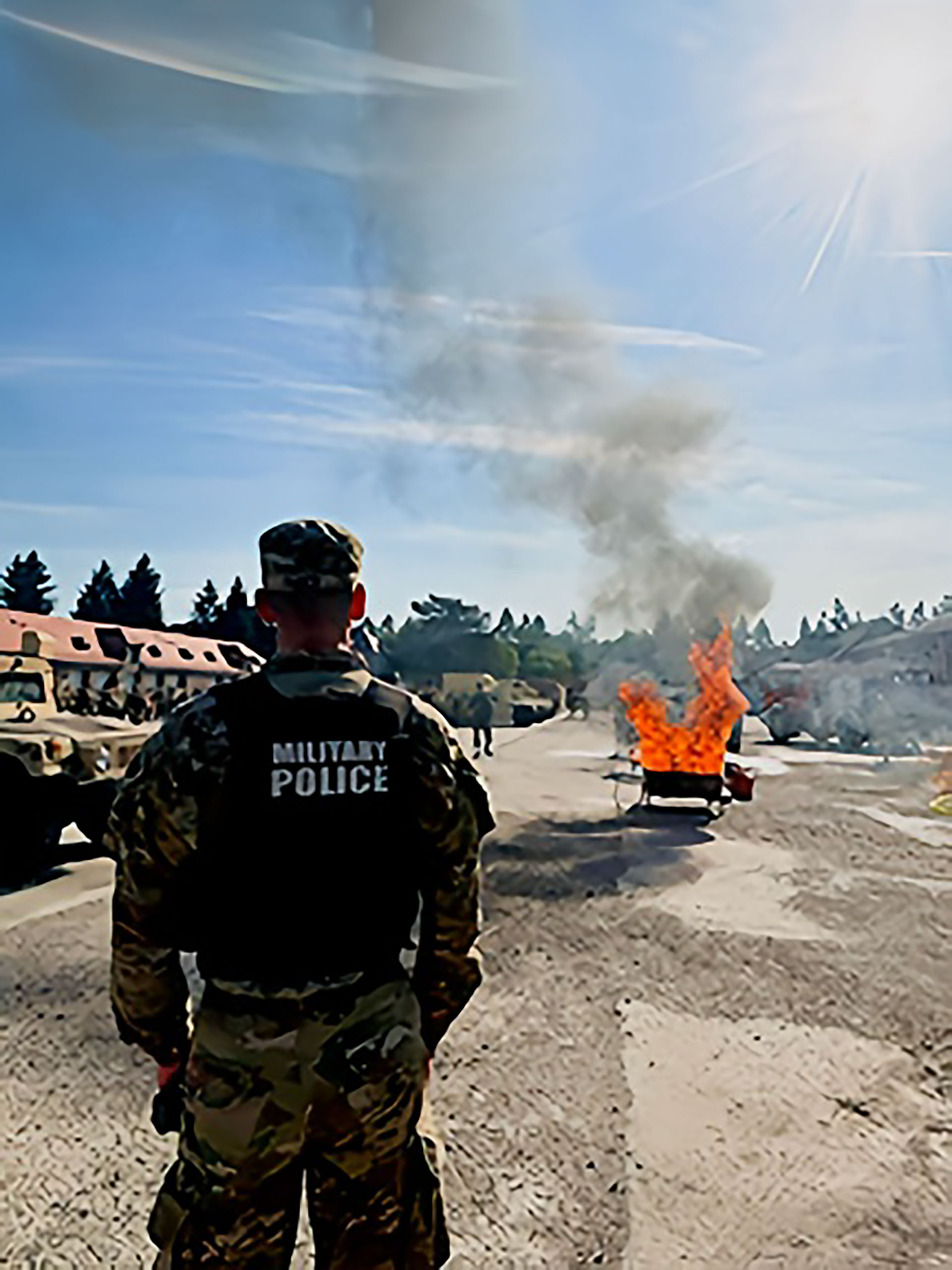The Importance of Interoperability in Military Police Law Enforcement
By Captain Justin A. Kane and First Sergeant Brian A. Everhart
The contents of this article do not represent the official views of, nor are they endorsed by, the U.S. Army, the Department of Defense, or the U.S. government.
Article published on: March 1st, 2025, in the Annual Issue of the Military Police Journal
Read Time: < 3 mins

As the U.S. Army continues to operate in a rapidly changing global environment, the need for effective interoperability among military police units has never been more critical. In the context of law enforcement, interoperability refers to the ability of different units, agencies, and nations to seamlessly work together, sharing in formation, resources, and best practices to achieve common goals. For military police units, interoperability is essential for ensuring the safety and security of personnel, equipment, and military operations.
In recent years, the U.S. Army has placed significant emphasis on building partnerships and fostering cooperation with international allies and partners. This has led to the increased presence of U.S. military police units in various regions, including eastern Europe, where they work closely with host nation law enforcement agencies and other coalition forces. However, this increased presence also presents challenges, particularly when it comes to interoperability.

Soldiers employ a Dronebuster during engagement with simulated hostile drones.
Military police units operating in foreign environments must navigate complex cultural, linguistic, and procedural differences, which can hinder effective communication and coordination. Moreover, the diversity of equipment, tactics, and techniques used by different units can create obstacles to seamless interoperability. For instance, differences in radio frequencies, interpersonal communication skills, and data-sharing protocols can limit the ability of units to share critical information in real time.
Despite these challenges, the benefits of military police law enforcement interoperability are numerous. By working together, units can share knowledge and expertise, leverage the strengths of one another, and develop more effective strategies for addressing common security threats. Interoperability also enables units to more quickly and effectively respond to emerging crises, such as natural disasters or terrorist attacks.

Soldiers conduct an integrated force protection exercise to test emergency response plans during a simulated drone attack.
As part of its mission in the Victory North area of operations in eastern Europe, the 984th Military Police Company, a U.S. Army Reserve unit from Fort Carson, Colorado, undertook the essential role of providing security, enforcing military law, and supporting U.S. military objectives. As the sole Active Component military police company in eastern Europe, the unit was tasked by V Corps to staff, manage, and operate the Eastern European Provost Marshal Office, a pivotal hub for coordinating law enforcement operations across 14 installations in Eastern Europe, including locations in Poland, Lithuania, Latvia, and Estonia. The 984th Military Police Company and the 320th Military Police Company, St. Petersburg, Florida, worked closely throughout the Victory North area of operations, conducting law enforcement investigations and joint training and providing general support to one another.
The 984th Military Police Company's recent rotation to Poland is a prime example of the importance of interoperability in expeditionary law enforcement. During its 9-month rotation, the unit worked closely with the Polish military police, Zandarmeria Wojskowa, as well as local civilian police forces to maintain order in eastern Europe. Through their joint efforts, the 984th Military Police Company was able to build strong relationships with its host nation counterparts, develop a deeper understanding of local law enforcement procedures, and enhance the overall security posture of the region.
During its time spent in eastern Europe, the 984th Military Police Company developed the following best practices for achieving interoperability:
- Conduct joint training and exercises. Regular joint training and exercises help build relationships, develop trust, and enhance interoperability among units. Informal engagements, such as physical readiness training, luncheons, sporting competitions, and invitations to unit events, create a warm environment for fostering relationships.
- Share information and intelligence. Sharing critical information and intelligence with partner units and agencies enhances situational awareness and improves decision making. Communication with host nation forces should occur on a frequent and routine basis; the time will come when U.S. forces need assistance from the host nation, and open lines of communication will establish the necessary rapport.
- Foster cultural awareness and understanding. A deep understanding of local cultures, customs, and law enforcement procedures facilitate effective communication and cooperation. Linguist assistance can be helpful during key leader engagements, and building relationships with linguists can help ensure that Soldiers are being heard and correctly understood prior to attendance at key leader engagements.
Interoperability is a critical component of effective military police law enforcement. By working together, sharing information and resources, and developing standardized procedures, military police units can enhance the safety and security of personnel, equipment, and military operations. As the U.S. Army continues to operate in a rapidly changing global environment, the importance of interoperability will only continue to grow. By prioritizing interoperability, military police units can ensure that they are equipped to meet the challenges of the future.
Authors
Captain Kane is the company commander for the 984th Military Police Company. He holds a master's degree in organizational security management from Webster University.
First Sergeant Everhart is first sergeant for the 984th Military Police Company. He holds a bachelor's degree in criminal justice from Purdue Global University.